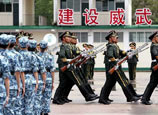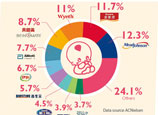
The difference in borrowing and lending rates created a high spread that contributed to large profit margins for Chinese banks. The liberalization of interest rates is seen as one of the preconditions for China to lift its capital control and fully realize the yuan's internationalization.
"As the economy slows and speculation and arbitrage are still rampant, the lending rate reform will test banks' efficiency and ability to withhold risks," Tan Yaling, head of the China Forex Investment Research Institute, told the Global Times.
"It will also place higher requirements on companies and pressure them to improve their competitiveness and quality of their projects in order to get bank loans," Tan said Friday.
In a research note sent to the Global Times Friday, Mark Williams, chief Asia economist at London-based Capital Economics, said that although the reform will lower borrowing costs, its immediate effect will be small because the rapid growth of the corporate bond market had provided an alternative source of credit for larger firms in recent years.
"Nonetheless, this is a significant development for China's financial sector in the direction of having interest rates determined by market forces rather than government fiat," Williams said.
The PBC did not change the ceiling on deposit interest rates.
"The impact of market-based deposit rates reform is more profound and requires higher conditions," the PBC said, noting that reform will be carried out gradually.
Wang Qinwei, a China economist with Capital Economics, Friday told the Global Times that a relaxation in deposit rates would exert pressure on banks, especially those big State-owned ones. "A series of steps are needed to avoid systemic risks, such as a deposit insurance system, which could be a precondition for the cap's removal," Wang said.

















 Elder couples celebrate golden wedding anniversary in Hangzhou
Elder couples celebrate golden wedding anniversary in Hangzhou


![]()
